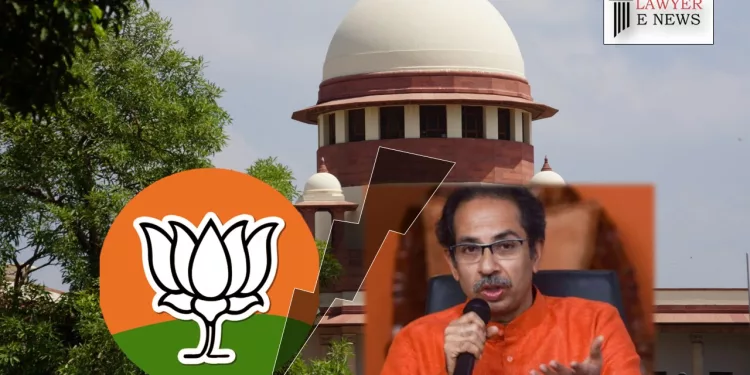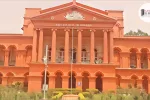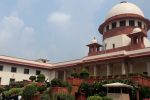Supreme Court Holds Governor’s Decision to Call for Floor Test Unjustified in Maharashtra Political Crisis

On 11 May 2023, In a significant ruling , the Supreme Court of India held that the Governor’s decision to call for a floor test in the Maharashtra political crisis was unjustified. The Court emphasized that the Governor erred in concluding that the Chief Minister had lost the confidence of the House without sufficient objective material. However, the Court noted that the status quo ante could not be restored as the Chief Minister had already resigned. The judgment was delivered by a bench comprising Chief Justice of India, Dr. Dhananjaya Y Chandrachud, and Justices MR Shah, Krishna Murari, Hima Kohli, and Pamidighantam Sri Narasimha.
The Supreme Court addressed the constitutional issues arising out of the political crisis in Maharashtra. The Court held that the Governor’s decision to call for a floor test lacked sufficient grounds and was not in accordance with the law.
The Court referred to the decision in Nabam Rebia case and decided to refer the correctness of the same to a larger bench of seven judges. It emphasized that the Court cannot ordinarily adjudicate on petitions for disqualification under the Tenth Schedule in the first instance. The Speaker must decide disqualification petitions within a reasonable period.
Addressing the rights of MLAs in the proceedings of the House, the Court affirmed that an MLA has the right to participate irrespective of the pendency of disqualification petitions. It clarified that the validity of proceedings is not subject to the outcome of such petitions.
Key Points Of Judgement:
It cannot ordinarily adjudicate petitions for disqualification under the Tenth Schedule in the first instance, and the Speaker must decide disqualification petitions within a reasonable period. [Para 206(b)]
MLA has the right to participate in the proceedings of the House regardless of the pendency of disqualification petitions, and the validity of the proceedings is not subject to the outcome of the disqualification petitions. [Para 206(c)]
The political party, and not the legislature party, appoints the Whip and the Leader of the party in the House. The Speaker should recognize the Whip and the Leader authorized by the Shiv Sena political party based on the party constitution. [Para 206(d)]
Speaker and the Election Commission of India (ECI) have concurrent jurisdiction to adjudicate on the petitions under the Tenth Schedule and Paragraph 15 of the Symbols Order, respectively. [Para 206(e)]
The effect of the deletion of Paragraph 3 of the Tenth Schedule is that the defense of ‘split’ is no longer available to members facing disqualification proceedings. The Speaker should determine the political party for adjudicating disqualification petitions when factions claim to be the same party. [Para 206(f)]
Governor was not justified in calling for a floor test as there was no objective material indicating that the Chief Minister had lost the confidence of the House. However, the status quo ante could not be restored as the Chief Minister had already resigned. [Para 206(h)]
Governor was justified in inviting Mr. Eknath Shinde to form the government based on the support extended by the Bharatiya Janata Party (BJP) MLAs and independent candidates. [Para 206(i)]
The Court also ruled that the appointment of the Whip and the Leader of the party in the House is the prerogative of the political party, not the legislature party. The Speaker should recognize the Whip and the Leader authorized by the Shiv Sena political party as per its constitution.
Regarding the jurisdiction of the Speaker and the Election Commission of India (ECI), the Court held that they have concurrent jurisdiction to adjudicate petitions under the Tenth Schedule and Paragraph 15 of the Symbols Order, respectively.
In relation to the disqualification petitions, the Court noted that the defense of ‘split’ is no longer available under the deleted Paragraph 3 of the Tenth Schedule. The Speaker should determine the political party in cases where factions claim to be the same party.
On the Governor’s decision to call for a floor test, the Court held that the Governor did not have sufficient objective material to conclude that the Chief Minister had lost the confidence of the House. However, it clarified that the status quo ante could not be restored as the Chief Minister had already resigned.
Finally, the Court validated the Governor’s decision to invite Mr. Eknath Shinde to form the government, considering the support extended by the Bharatiya Janata Party (BJP) MLAs and independent candidates.
On 11 May 2023
Subhash Desai vs Principal Secretary, Governor of Maharashtra & Ors.






